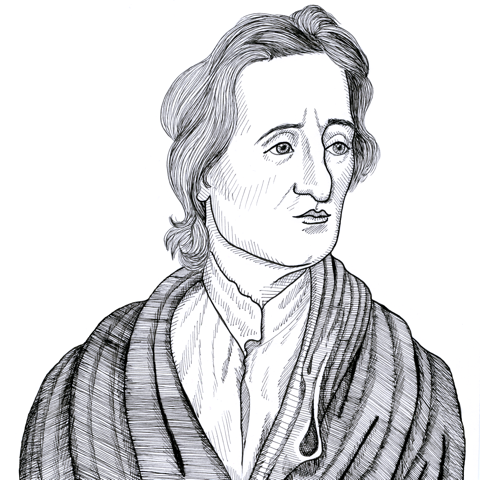
Quotes by John Locke
1632 – 1704
John Locke (1632-1704) was an English philosopher who is considered to be one of the first philosophers of the Enlightenment and the father of classical liberalism. In his major work Two Treatises of Government Locke rejects the idea of the divine right of kings, supports the idea of natural rights (especially of property), and argues for a limited constitutional government which would protect individual rights.
Bio
See also our collection of extracts, essays, and other resources on Locke.
See the Liberty Matters online discussions of John Locke on Property, John Locke on Commercial Society and John Locke on Commercial Society
For additional information about John Locke see the following:
- Timeline on the Life and Work of John Locke
- Bibliographical Essay on John Locke and Property
- Reading List on An Introduction to the Political Thought of John Locke
- Topic on The English Revolution
- Debate on The Divine Right of Kings
- Debate on Religious Toleration
Education
John Locke tells a “gentleman” how important reading and thinking is to a man of his station whose “proper calling” should be the service of his country (late 1600s)
Law
John Locke on the idea that “wherever law ends, tyranny begins” (1689)
Religion & Toleration
John Locke believed that the magistrate should not punish sin but only violations of natural rights and public peace (1689)
Natural Rights
John Locke on “perfect freedom” in the state of nature (1689)
Natural Rights
John Locke on the rights to life, liberty, and property of ourselves and others (1689)
Religion & Toleration
John Locke on the separation of Church and Magistrate (1689)